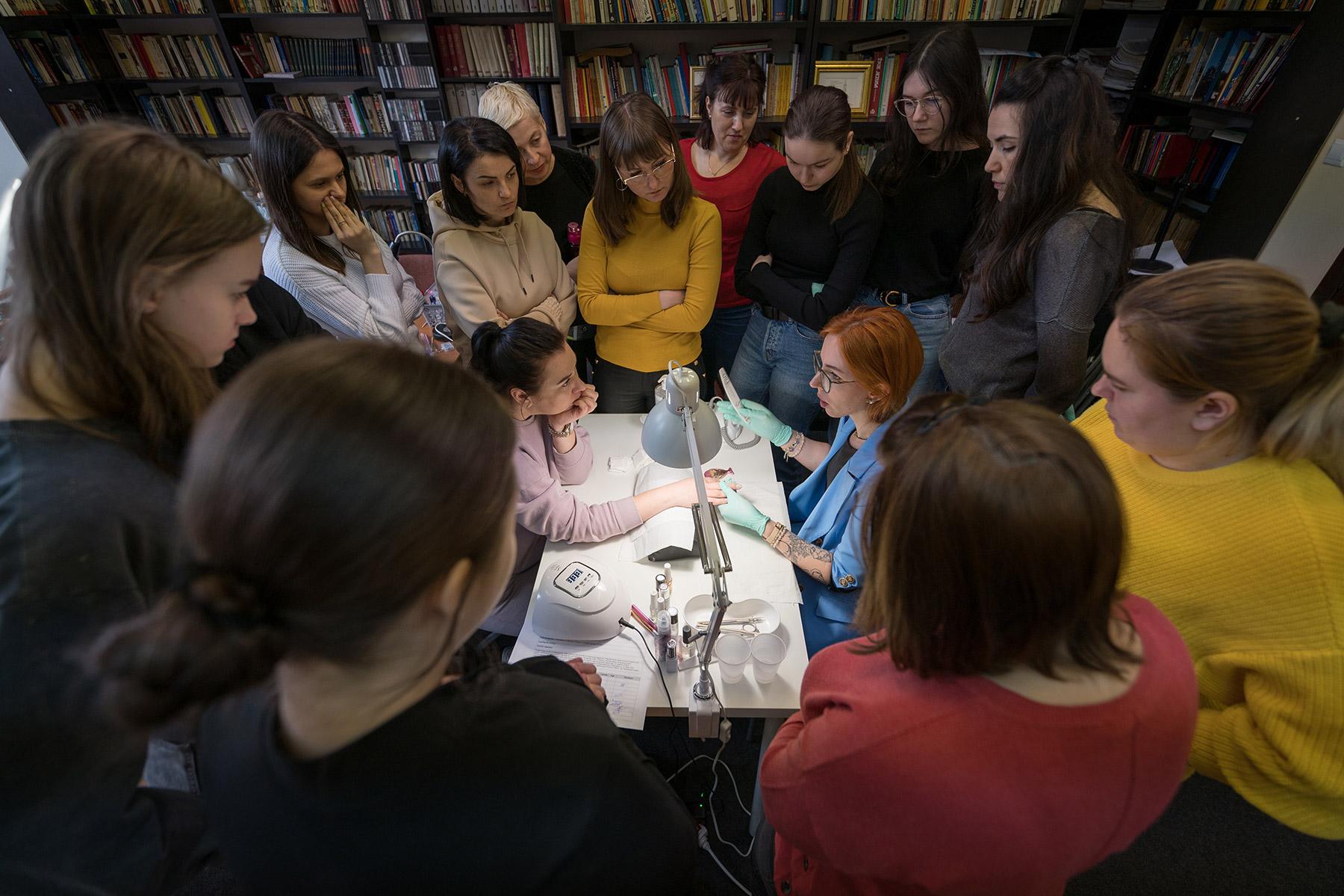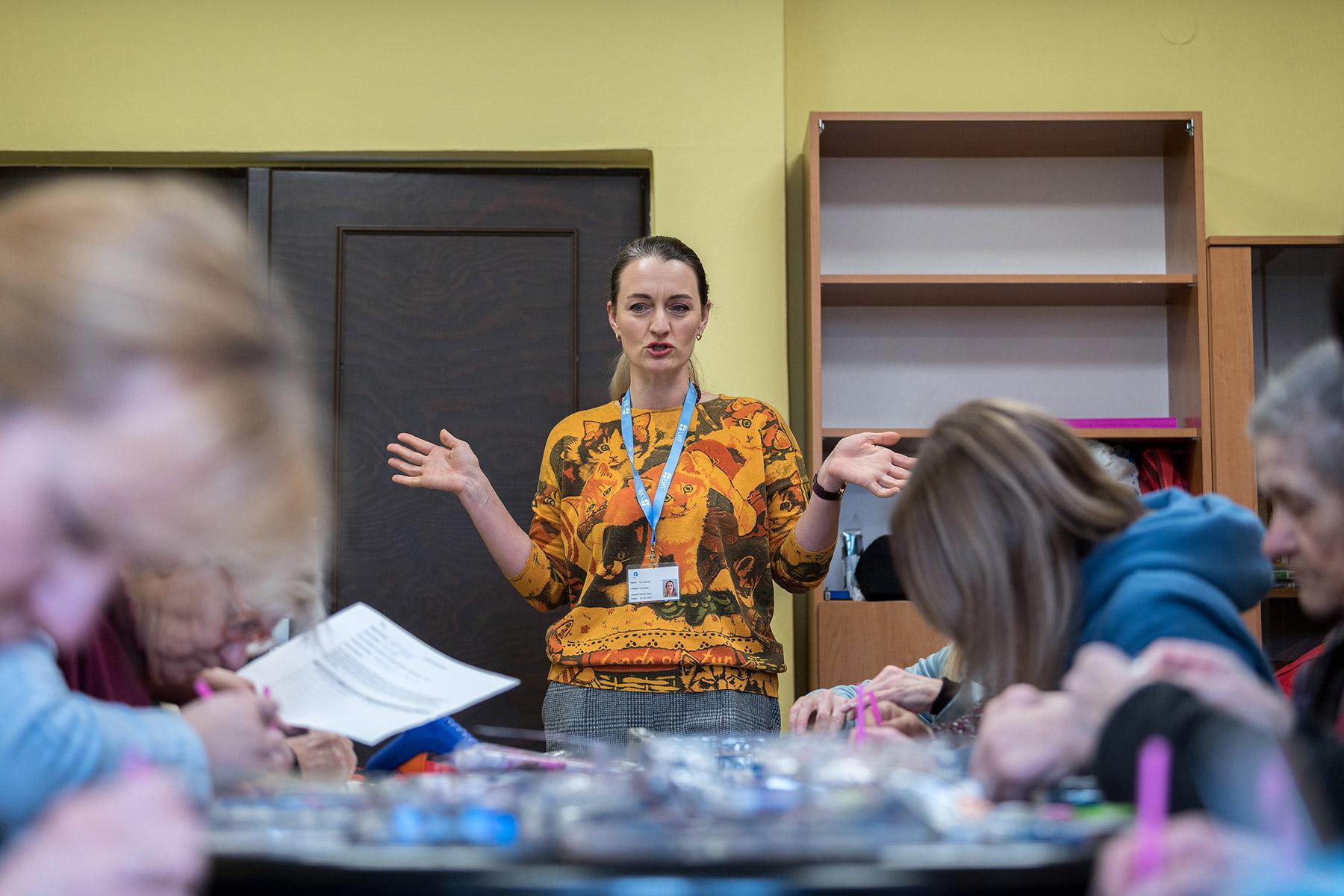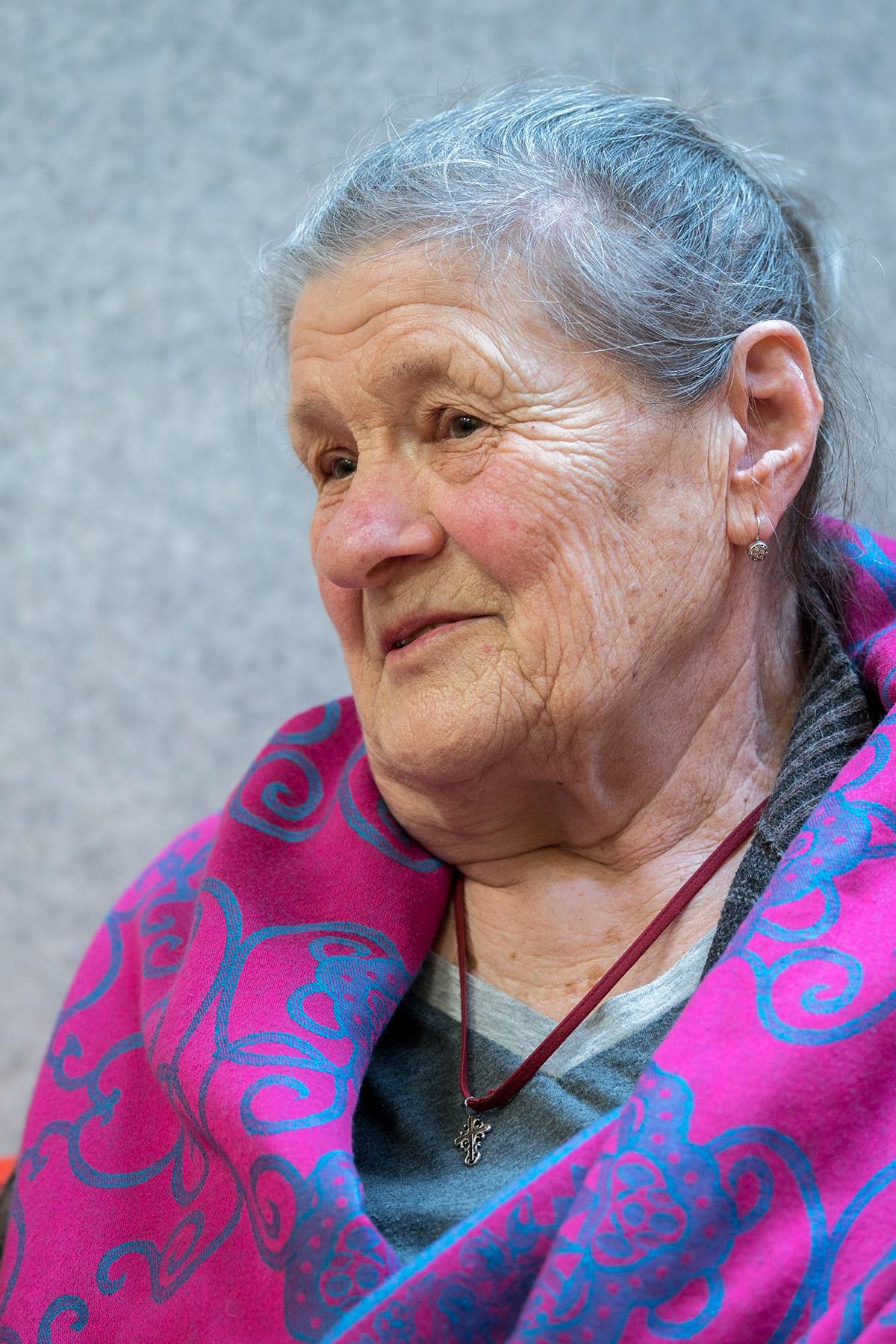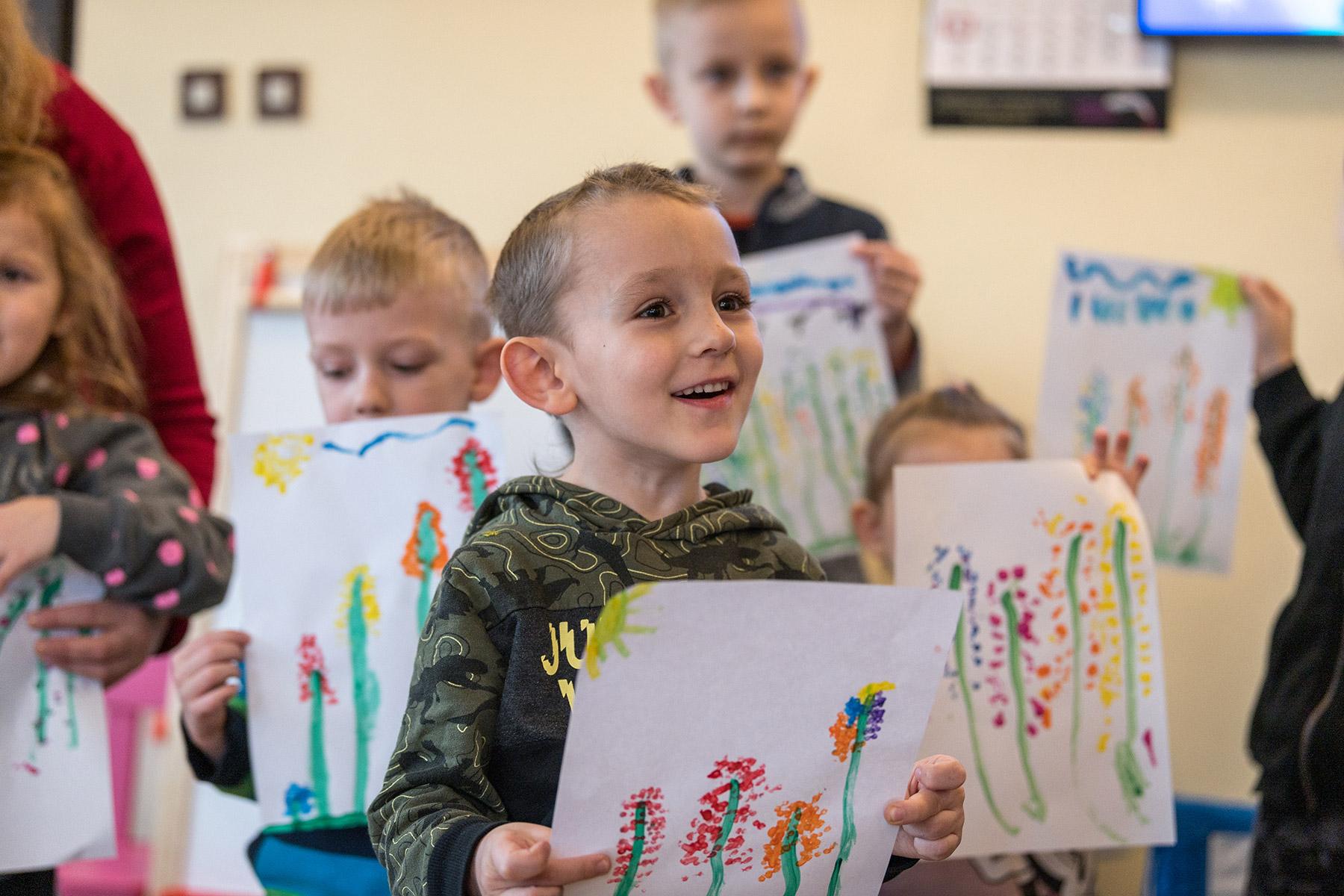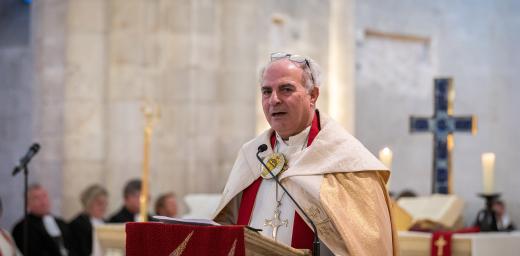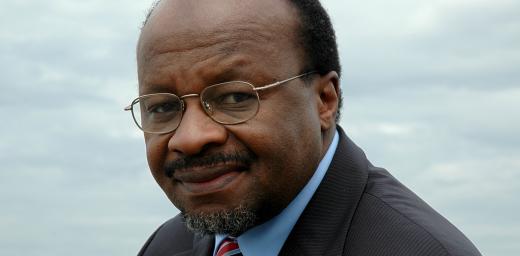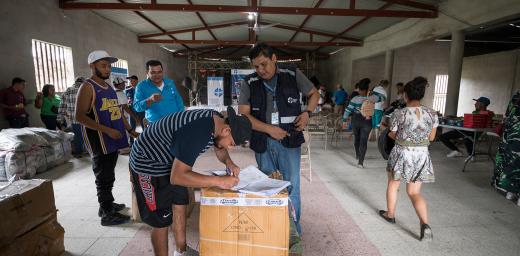LWF community centers support integration of Ukrainian refugees
(LWI) - One year after they fled the war in Ukraine, refugees in Poland find themselves between local integration on the one hand and homesickness and worry about loved ones on the other. The LWF community center in Bielsko-Biala, Poland, helps them navigate their new lives.
In one room, 14 young women train manicure to start their own business. In the next, 20 elderly women craft “diamond pictures” and paper flowers, singing in Ukrainian, while a psychologist talks about managing long-distance relationships. Downstairs, their children paint and play, while a TV displays Ukrainian cartoons. All the women fled the war in Ukraine and found a temporary home in Poland, but they have different needs. While some plan for a life abroad, others seek to return as soon as it is safe.
As important as cash
Tetiana Shupytska (62) from Dnipro glues little diamond-shaped stones on a blue-and-yellow picture with a dolphin. She arrived on 5 March 2022, with one of her daughters and her grandson. “It is calm here, comfortable. We do not have to be afraid of bombs”, she says. Like many, she initially thought the war would end within days, but after a week of air raids and explosions, she decided to leave. “We only had the clothes we were wearing”, she says. “At the beginning, it was very hard.”
Bielsko-Biala in Silesia is the Lutheran hub in Poland, a country shaped by the Roman-Catholic faith. The Lutheran congregation has a big church, a parish building with its own printing shop, and several schools. The only statue of Martin Luther in Poland stands in front of the church, the parish house and the church’s own publishing house named “Augustana”. The community center, run by LWF World Service and the Evangelical Church of the Augsburg Confession in Poland, is located inside the parish building. It features spaces for workshops and meetings, and two playrooms for children.


